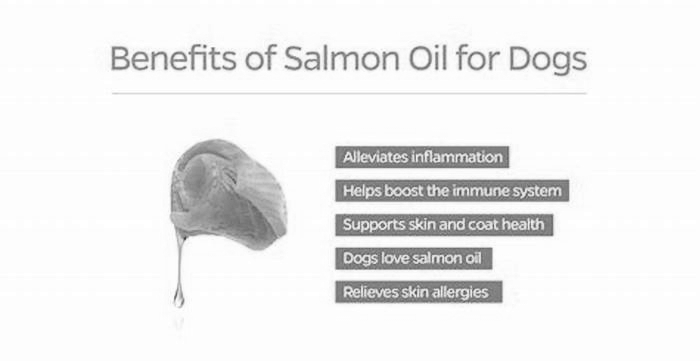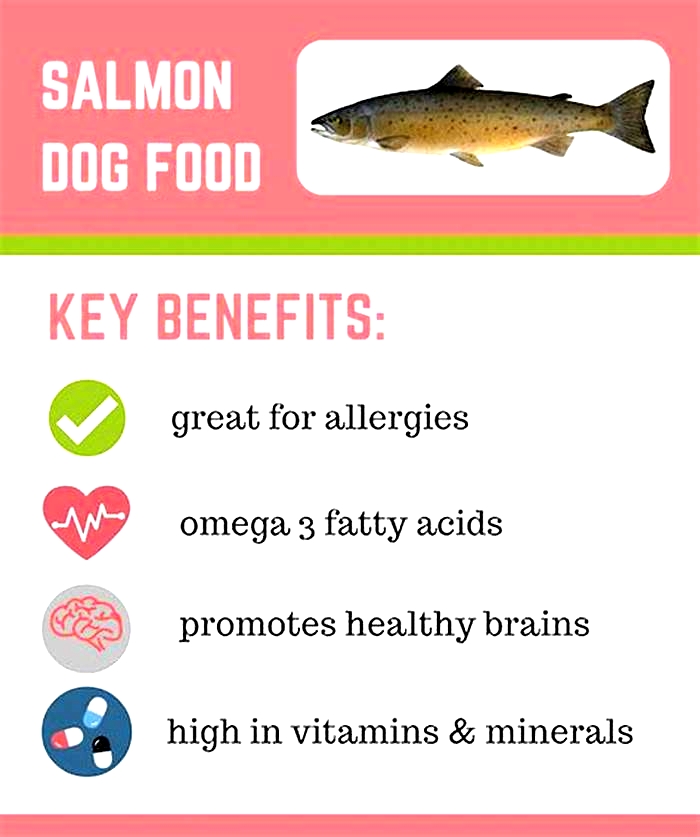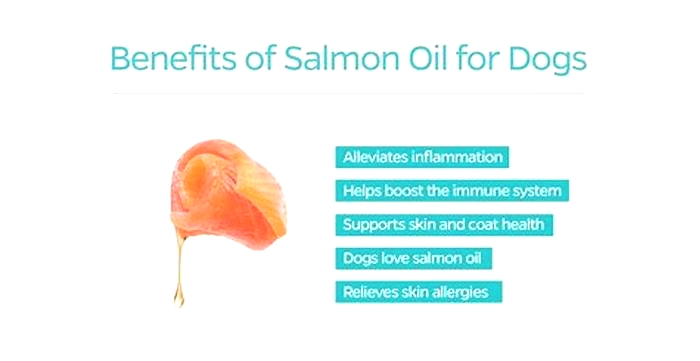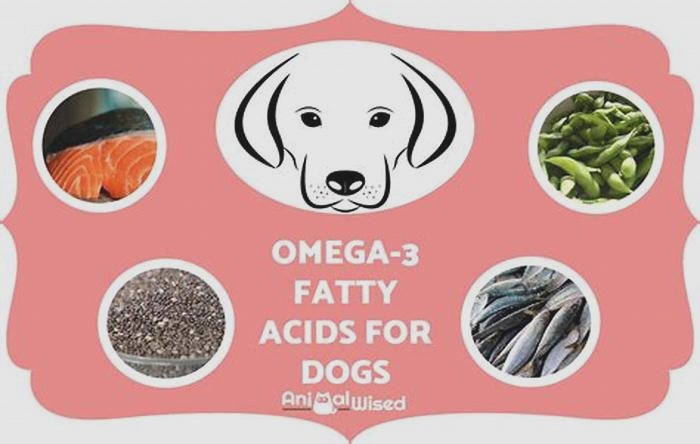Discovering the Benefits of Salmon Infused Diets for Dogs

Can Dogs Eat Salmon?
The popularity of salmon has steadily increased over the years, and it should not come as a surprise. Salmon is a type of fish known for its nutritional benefits, including being a good source of protein and healthy fats. Therefore, it is not uncommon for people to wonder if dogs can eat salmon and if it is safe and healthy for them. Although it is true that salmon can be a nutritious addition to a dog's diet, some precautions must be taken.
In the following AnimalWised article you will learn if salmon is good for dogs, what benefits and side effects it has and how you can offer it.
Is salmon good for dogs?
Salmon can be good for dogs in moderation and when prepared correctly. Salmon is a good source of protein, omega-3 fatty acids, and vitamins such as B12 and D, which can benefit a dog's health.
While salmon can be a nutritious addition to a dog's diet, there are some precautions that should be taken. Raw or undercooked salmon may contain harmful bacteria that can cause food poisoning, and some types of fish may contain bones that can pose a choking hazard or injure a dog's digestive tract. In addition, some seasonings and sauces used to prepare salmon may contain ingredients that are toxic to dogs, such as garlic and onions.
It's also important to note that some dogs may be allergic to salmon or other types of fish, so it's best to introduce it to your dog's diet in small amounts and monitor their reaction.
Overall, salmon can be a healthy and nutritious addition to a dog's diet when served properly, but it's always best to consult with a veterinarian before making any changes to your dog's diet.
Benefits of salmon for dogs
Salmon can provide several benefits for dogs when included in the diet in moderation and prepared properly. Here are some of the benefits of salmon for dogs:
- Rich in protein: salmon is a good source of high-quality protein, which is essential for building and repairing tissues in the dog's body.
- Omega-3 fatty acids: is rich in omega-3 fatty acids, which have an anti-inflammatory effect, support heart and brain health, and promote healthy skin and coat.
- Vitamins and minerals: is also a good source of vitamins and minerals, including vitamin B12, vitamin D and selenium, which can support the overall health of the dog.
- May reduce the risk of heart disease: The omega-3 fatty acids in salmon may help lower blood pressure and reduce the risk of heart disease in dogs.
- May support joint health: The anti-inflammatory effects of omega-3 fatty acids may also help reduce inflammation in joints, which can be beneficial for dogs with joint problems like arthritis.
You may also be interested in this other article, where we look at the best omega-3 rich food for dogs.
How to give salmon to dogs?
When giving salmon to dogs, it's important to prepare it correctly and serve it in a way that is safe and healthy for your dog. Here are some steps to follow:
- Choose the right salmon: Look for fresh, high-quality salmon that is free from bones and is not seasoned with any added spices or sauces.
- Cook the salmon: Cook the salmon thoroughly to kill any bacteria or parasites that may be present. You can boil, bake, or grill the salmon, but avoid using any oils or seasonings.
- Remove the skin and bones: Once the salmon is cooked, remove the skin and any bones before serving it to your dog. The skin can be difficult for dogs to digest, and the bones can pose a choking hazard or cause injury to their digestive tract.
- Serve in small portions: Give your dog a small portion of salmon, starting with just a few bites to see how they tolerate it. Avoid giving your dog large portions, as this can cause digestive upset.
- Monitor your dog's reaction: Watch your dog closely after feeding them salmon to ensure they are tolerating it well. If you notice any signs of digestive upset or allergic reaction, such as vomiting, diarrhea, or itching, stop feeding them salmon and consult with a veterinarian.
You may also be interested in this other article, where we talk about what the BARF diet is for dogs, as well as some tips and a sample menu.
Dosage of salmon for dogs
The proper dosage of salmon for dogs may depend on several factors, including the dog's size, age, and health status, as well as its individual nutritional needs.
A general guideline for feeding salmon to dogs is to give them no more than 12 servings per week. The serving size may depend on the size of the dog, but in general, a small dog should not get more than a 1 ounce (ca. 38 g) serving, while a larger dog can get up to 4 ounces (ca. 151 g) per serving.
If you have concerns about feeding salmon to your dog, you should consult a veterinarian to determine if the food is appropriate for your dog's individual nutritional needs and health status.
Side effects of salmon for dogs
Eating salmon can be associated with a number of health risks for our dogs, especially if the recommendations we have mentioned throughout the article are not followed. These are the side effects of salmon for dogs:
- Parasites: Like other fish, salmon can be parasitized by nematodes of the genus Anisakis.
- Bacteria: in addition to parasites, salmon may also contain pathogenic microorganisms such as Enterobacteriaceae, Aeromonas, etc., which can lead to food poisoning.
- Bones: Some types of salmon may contain bones that can pose a choking hazard or cause injury to a dog's digestive tract. Therefore, it's important to prepare salmon correctly by removing any bones before feeding it to your dog.
- Mercury: Some types of fish, including salmon, may contain high levels of mercury, which can be harmful to dogs when consumed in large amounts. Therefore, it's best to feed salmon to dogs in moderation and not as a primary source of protein.
You may also be interested in this other article, where we discuss whether tuna is safe for dogs.
Contraindications of salmon for dogs
Although salmon is a suitable food for dogs, there are certain exceptions in which its contribution is not recommended:
- Dogs that require a low-fat diet: as in the case of dogs with obesity, gastroenteritis, IBD, or pancreatitis.
- Dogs with allergies or food intolerances: However, there are hypoallergenic salmon-based diets that are best suited for dogs with these conditions.
- Dogs taking medications: The omega-3 fatty acids in salmon can interact with certain medications, such as blood thinners. Therefore, it is best to talk to your veterinarian if your dog is taking medication.
You may also be interested in this other article, where we talk about food allergies in dogs.
If you want to read similar articles to Can Dogs Eat Salmon?, we recommend you visit our Homemade diets category.
Bibliography
Ministry of Agriculture, Fisheries and Food. Salmon. salty psalm Available at: https://www.mapa.gob.es/es/ministerio/servicios/informacion/salmon_tcm30-102435.pdf
Is Salmon Dog Food Good for Dogs? Uses, Benefits & Considerations
The information is current and up-to-date in accordance with the latest veterinarian research.
Learn moreProtein is the single most essential element in dog food, so how do you pick the right one? With options like chicken, fish, beef, and salmon in dog food recipes, it is important to know their characteristics and what to choose. Salmon is not only healthy for dogsit can be a really nourishing protein for sensitive pups. So, salmon is an excellent example of a commonly selected protein with several health benefits. Lets learn more.

What Is Salmon and Why Do Pet Food Companies Use It?
Salmon is a fish native to the North Atlantic and Pacific oceans. It is a very readily available protein source in many recipes of various brands of dog foodthere is no shortage. Salmon are fresh and saltwater fish that are both abundant and nutritious for humans and pets alike.
Due to its availability and nutritional perks, many pet food companies choose to incorporate it into their ingredients list. You often see salmon as the main ingredient, but it could also be a secondary ingredient to another protein source.

Skin & Coat
Because of its high omega-3 fatty acid content, salmon nourishes the coat and skin. It nourishes and restores the skin, creating a lustrous, shiny coat. Its often used in recipes for dogs who have skin problems.
Dogs with dry, itchy skin can benefit from switching to a salmon-based diet.
Sensitive Stomach
You might see salmon in some sensitive stomach recipes. It tends to be easily digestible and agreeable and is especially beneficial for dogs who have developed sensitivities to other food sources.
Alternative Protein Source
If your dog is sensitive to specific ingredients in common commercial dog foods, they might need a novel or limited-ingredient diet. Unless their trigger is this fish, salmon is a trusted main ingredient for these recipes.

Top 4 Salmon Health Benefits
Salmon is full of health benefits to nourish your dogs body.

1. Omega 3 Fatty Acids
Salmon is chock full of omega-3 fatty acids. These healthy oils provide several benefits, such as protecting the heart and lubricating joints and ligaments. They also have an antioxidant and anti-inflammatory effect. They keep the skin nourished and radiant.
2. Anti-Inflammatory Properties
Since salmon naturally contains omega-3 fatty acids, it has a fair amount of DHA and EPA. These same omega-3s can reduce inflammation and joint pain.
3. Fat-Soluble Vitamins
Salmon contains fat-soluble vitamins, too. Here are the main ones, along with the benefits.
- Vitamin A for bone and immune health
- Vitamin D regulates calcium absorption
- Vitamin E for skin and coat health
Salmon Health Considerations
Because salmon is a pretty prevalent protein in dog foods, it can lead to protein allergies. If you feed your dog a commercial dog food with salmon as the primary protein and notice allergy signs, it might be time to look for another option.
Some signs of allergies include:
- Excessive itchiness
- Recurring ear infections
- Recurring yeast infections on the skin
- Lack of appetite
- Nausea
- Vomiting
- Constipation/diarrhea
Work with your vet to determine the underlying cause if a food allergy is suspected. You might have to go through food trials to get to the bottom of it.

Raw Salmon: Is It Safe?
Raw dog food is starting to take the world by storm. It creates a more authentic diet to appeal to their natural roots. But is it okay to feed your dogs raw salmon?
You should never give your dog raw or undercooked salmon due to health risks. Raw salmon can carry the parasite fluke Nanophyetus salmincola. This parasite is generally harmless to dogs unless it is infected with a bacteria called Neorickettsia helminthoeca, which is responsible for salmon poisoning in dogs, it couldmake your dog very sick.

Salmon in Dog Food: Final Thoughts
We hope we have answered all your salmon-related questions. Now it might be easier to decide to put salmon in your dogs daily food dish. Salmon has its perksfull of omega-3 fatty acids, vitamins, and minerals. Plus, if you have a sensitive pooch, switching to this protein might be a good move.
Only you can decide if this is right for your dog. If you have any questions about salmon, speak with your vet.
See also:
Featured Image Credit: O_Lypa, Shutterstock
20 Benefits of Fish Oil for Dogs (Based on Science)
If there's one dog supplement worth its hype, it's fish oil. Omega-3 fatty acids and EPA/DHA found in fish oil have been proven to aid dogs in more than one way. From brain function to shiny coat, from joint health to digestion issues, there are many science-based benefits of fish oil for dogs.
You can buy fish oil for dogs in a liquid or capsule form. The liquid is easy to administer by pouring over your dog's kibble or adding to homemade dog food. Fish oil pills are more convenient if your pooch is fine with taking them, either by themselves or using pill pockets.
When administering fish oil to dogs, it's best to give them the purest forms of fish oil. Dosing should always be established by your veterinarian, particularly if you're adding omega-3s due to some health condition of your dog.
The chart below gives basic dosage limits of fish oil for dogs:
| Weight in Lbs | MG of Omega-3 Daily |
| 10 | 250 |
| 20 | 550 |
| 30 | 800 |
| 40 | 1100 |
| 50 | 1350 |
| 60 | 1650 |
| 70 | 1900 |
| 80 | 2200 |
| 90 | 2500 |
| 100 | 2700 |
| 110 | 3000 |
| 120 | 3200 |
Note: Pay attention to the quantity of Omega-3s (EPA/DHA) in your dog's fish oil supplements. Just because a supplement is 1200mg fish oil, it may be that only 360mg of that is omega-3s. These are usually indicated on the label, sometimes under asterisk.
20 Benefits of Fish Oil for Dogs
1. It's Anti-Inflammatory
Omega-3s, and in particular Eicosapentaenoic Acid (EPA) found in omega-3 fatty acids, is a powerful anti-inflammatory (1). Their addition in the diet was shown to reduce the production of molecules that contribute to inflammation (2, 3).
This means that fish oil supplements can benefit dogs with a wide variety of inflammation related conditions such as auto-immune diseases, arthritis, hip dysplasia, and muscle strain or injury, among others (4, 5, 6, 7, 8, 9).
Inflammation is also associated with post-surgical recovery, and fish oil can speed up dog's recovery following surgical procedures (10, 11, 12).
2. It's Great for a Dogs Coat
EPA in fish oil will improve a dog's coat, making it shinier and healthier overall (13, 14). It helps manage hydration and production of oils in a dog's coat and prevents hair follicle hyperkeratinization.
Dogs that were fed omega-3s showed improvements in their skin and coat, and it was particularly beneficial for dogs with atopic dermatitis and other skin related conditions (15, 16, 17, 18).
Combine regular fish oil supplementation with daily or weekly brushing (depending on the breed) and your dogs coat will look better than ever.
3. It Aids in Anxiety Relief
Benefits of fish oil for dogs aren't just physical. Studies have shown that omega-3s found in fish oil can decrease anxiety and improve anxiety related symptoms (19, 20, 21).
This is due to the fact that omega-3s promote healthy brain activity. The specifics of why omega-3s help with anxiety is still a mystery, but studies confirm lower levels of omega-3s in individuals displaying anxiety and higher levels in those without anxiety.
4. It Benefits Brain Development and Function
The omega-3 fatty acids EPA and DHA are one of the major building blocks of the brain, and are crucial for proper brain function (22, 23, 24).
Adult dogs and senior dogs can benefit from fish oil because it helps to stave off depression, anxiety, and cognitive dysfunction (25, 26). Fish oil has also been shown to improve memory, improve learning, and promote better behavior (27, 28).
Just like human babies, it's possible that puppies may also benefit from fish oil which promotes healthy brain development, especially if given to gestating mothers (29, 30).
5. It Helps a Dogs Eyesight
DHA is not only beneficial to the brain, but it has eyesight benefits as well (31).
In puppies, DHA can promote healthy eye development. In adults, studies have shown that DHA can help prevent or slow deterioration from glaucoma, dry eye syndrome, and macular degeneration (32, 33).
6. It Slows Down Cancer Growth
Research has shown that an excess of omega-6, which is frequently found in abundance in dog foods, can stimulate the growth of certain types of canine cancers, whereas addition of omega-3s will decrease the risks (34, 35, 36).
This over-consumption of omega-6 can be offset by supplementing with the omega 3s found in fish oil. Omega-3s decrease the negative effects of the omega-6s so that they are less likely to set the stage for cancer development in dogs (37, 38, 39, 40).
Its important to supplement your dog's diet with healthy sources of omega-3 when fighting cancer. It means either using fish oil supplements or healthy foods high in omega-3s such as krill oil, sardines, mackerel, salmon, and menhaden.
7. It Will Boost a Dogs Immune System
Recent research has found that the DHA in fish oil can increase B cell activity (41).B cells are a type of white blood cell that plays an important role in the dog's bodys immune response.
B cells are specialized immune cells that make antibodies. Antibodies affix themselves to the antigens on germs. This stops germs and makes them recognizable as invaders that must be destroyed.
8. It Remedies Skin Conditions
Whether your dog has itchy skin, allergies, dry skin or dandruff, fish oil can help (42).
There are two reasons for this. First, fish oil is hydrating, which means that dry skin receives the injection of moisture it needs to repair and recover. Second, the omega-3 fatty acids in fish oil are anti-inflammatory.
Many skin conditions in dogs result in inflammation and redness that can be bothersome and cause more scratching. Reducing inflammation stops the cycle of scratching and damaging skin, and studies show that adding fish oil into a dog's diet will reduce symptoms of many different skin conditions, including psoriasis (43, 44, 45, 46).
9. It Can Be Used as a Food Topper
Benefits of fish oil for dogs can also be practical. Fish oil has a very fishy scent and a fishy taste which is particularly appealing to some dogs. Adding a little of this stinky, tasty treat to your dogs kibble can tempt them to eat when they are being extra picky.
Fish oil on food can also help to get your dog to eat when they are sick or experiencing anorexia due to medication side effects. This is particularly common with chronic illnesses.
10. It Benefits a Dog's Heart Health
One of the most well-known benefits of fish oil for dogs is that it can reduce blood pressure and triglyceride levels (47, 48, 49).
High triglycerides arent usually a concern for dogs, but blood pressure can be. For example, in some dogs with heart disease where the heart struggles to pump blood, a reduction in blood pressure can make this easier (50, 51).
Most of the time, this decrease in dog's blood pressure is achieved with prescription medications, but fish oil supplements can be beneficial too. In fact, regular omega-3s supplementation through fish oil can help to avoid the need for medications that come with a host of potential side effects.
11. It Decreases Shedding
Because healthy fats in fish oil contribute to stronger and healthier dog hair, dogs are likely to shed less. Although dogs tend to blow their coat once or twice a year, an unhealthy diet can cause increased shedding. Supplementing with fish oil means fewer dead and dull hairs, which means less hair falling out.
12. It Benefits Dogs with Canine Cognitive Dysfunction
Canine Cognitive Dysfunction (CCD) is a natural result of aging in the dog's brain. Most dogs will experience some degree of CCD in their senior years. Fortunately, studies have shown that supplementation with fish oil can reduce the severity of dementia and even keep it at bay (52, 53, 54).
The reason behind fish oils benefit in CCD is thought to be the result of the anti-inflammatory, anti-tau, and anti-amyloid action of omega-3s. Interestingly, supplementation with omega-3s alone does not seem to have the same effect as supplementation with fish oil specifically.
13. It Helps to Control Diabetes in Dogs
Recent research studies have shown that fish oil supplements can reduce the risk of developing type 2 diabetes (55, 56, 57). This happens as a result of an increase in adiponectin hormone levels which play a role in insulin sensitivity.
For dogs with type 2 diabetes already, fish oil supplementation can help in the same way. Some dog owners have even found that with proper diet and fish oil supplements, their dogs eventually no longer need medications.
14. It Improves Circulation
There are many health conditions that can result in poor circulation, but supplementing with fish oil can improve this condition in dogs (58, 59).
Fish oil firstly reduces inflammation in a dog's body which can lead to poor circulation. Then, fish oil helps to clear plaques that may have built up in the dog's arteries (although this is uncommon in dogs) and allows for better blood flow (60, 61).
15. It's Beneficial for Thyroid Issues
Research has shown that fish oil may play a role in thyroid health by promoting the uptake of thyroid hormone (62, 63, 64). Studies compared the thyroid hormone receptor and enzyme levels in individuals supplementing with fish oil and those without.
Those taking fish oil had better thyroid hormone uptake. This is particularly good news for dogs with hypothyroidism. Additionally, since inflammation is a contributing factor to hyperthyroidism, fish oil has been beneficial in hyperthyroidism patients too.
16. It Improves Kidney Function
Researchers studying fish oil and its use in kidney failure patients have found that high doses of fish oil can slow kidney disease and renal failure in dogs (65, 66). Other studies with humans found even more evidence for this (67, 68).
In one study, 85% of kidney failure patients taking high doses of fish oil still had kidney function eight years later (69).This compares to 56% of patients who were not taking fish oil.
17. It Reduces Muscle Fatigue
Benefits of fish oil for dogs also extend to working breeds and sporting dogs. Studies have found that dietary supplementation of fish oil delays muscle fatigue (70, 71, 72). This happens because the DHA in fish oil cuts down the amount of oxygen used when muscles contract.
18. It's Great for Epileptic Dogs
In 2014, researchers released study results that showed a correlation between omega-3 fish oil intake and seizure activity (73). Individuals with epilepsy particularly those who no longer respond to medications experienced less seizure activity when they took fish oil supplements daily.
Other studies found similar results in how fish oil benefits epileptic dogs (74, 75, 76).
The theory here is that fish oil promotes brain health but it also helps to stabilize heart rhythm and reduces the excitability of brain cells. The culmination of these factors results in fewer seizures.
19. It Will Help Fight Depression in Dogs
Researchers believe that there is a link between low levels of EPA/DHA and depression. Although more research is needed, preliminary studies have shown that supplementation with fish oils can reduce levels of depression in both humans and animals (77, 78, 79).
Few of us consider that our dogs can become depressed, but they can. Depression in dogs is particularly common in dogs grieving the loss of a companion or human guardian. It can also develop from severe anxiety, too much stress or poor diet.
20. It Lowers a Dog's Blood Pressure
The role of omega-3 fatty acids in high blood pressure reduction is not known, but studies have proven that fish oil supplementation does cause a reduction in high blood pressure (80, 81, 82).
Although dogs and cats can both experience hypertension, it was only recently that vets began measuring blood pressure routinely because primary hypertension is quite uncommon.
Only between 0.5% and 10% of dogs experience primary high blood pressure. High blood pressure can also be the result of another illness, disease or the side effect of a medication. Secondary hypertension is more prevalent than primary hypertension and makes up 80% of hypertension cases in dogs.
The Best Fish Oil for Dogs Supplements
Seeing how many benefits of fish oil for dogs there are, it's reasonably to start including this supplement in your pet's diet. You can do this either with liquid or pill-form fish oil. Here are the best dog fish oil supplements we've liked in the past.
READ NEXT:Top 5 Best Fish Oil Supplements
Disclosure: Wemay earn affiliate commissions at no cost to you from the links on this page. This did notaffect our assessment of products.Read more hereand findfull disclosure here.
Want to share this?










